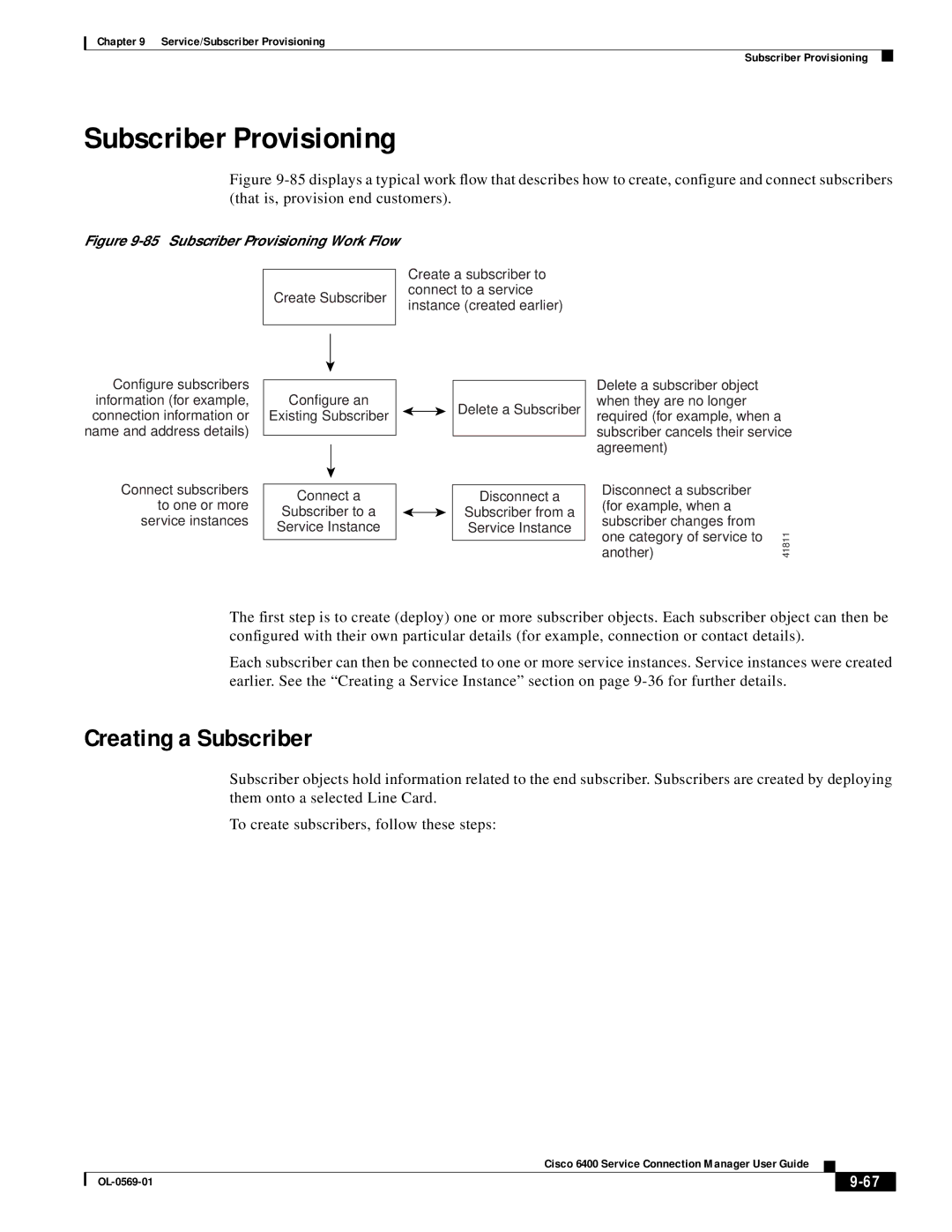
Chapter 9 Service/Subscriber Provisioning
Subscriber Provisioning
Subscriber Provisioning
Figure 9-85 displays a typical work flow that describes how to create, configure and connect subscribers (that is, provision end customers).
Figure 9-85 Subscriber Provisioning Work Flow
Create Subscriber
Create a subscriber to connect to a service instance (created earlier)
Configure subscribers information (for example, connection information or name and address details)
Connect subscribers to one or more service instances
Configure an
Existing Subscriber
Connect a
Subscriber to a Service Instance
| Delete a subscriber object |
| |
Delete a Subscriber | when they are no longer |
| |
required (for example, when a |
| ||
|
| ||
| subscriber cancels their service | ||
| agreement) |
| |
| Disconnect a subscriber |
| |
Disconnect a |
| ||
(for example, when a |
| ||
Subscriber from a |
| ||
subscriber changes from |
| ||
Service Instance |
| ||
one category of service to | 41811 | ||
| |||
| |||
| another) | ||
The first step is to create (deploy) one or more subscriber objects. Each subscriber object can then be configured with their own particular details (for example, connection or contact details).
Each subscriber can then be connected to one or more service instances. Service instances were created earlier. See the “Creating a Service Instance” section on page
Creating a Subscriber
Subscriber objects hold information related to the end subscriber. Subscribers are created by deploying them onto a selected Line Card.
To create subscribers, follow these steps:
Cisco 6400 Service Connection Manager User Guide
|
| ||
|
|
